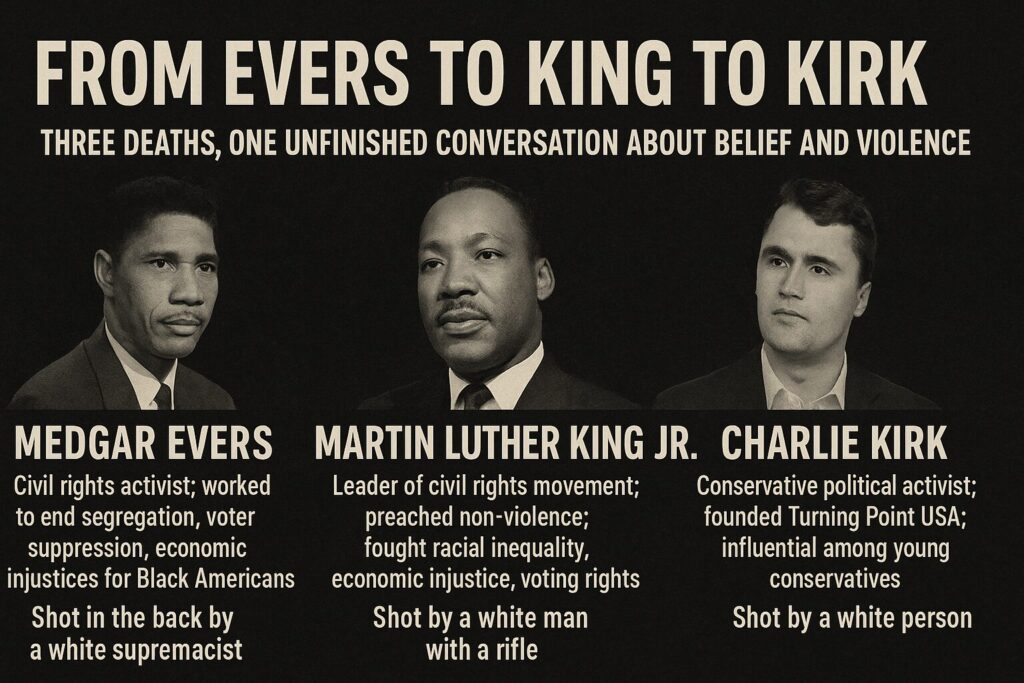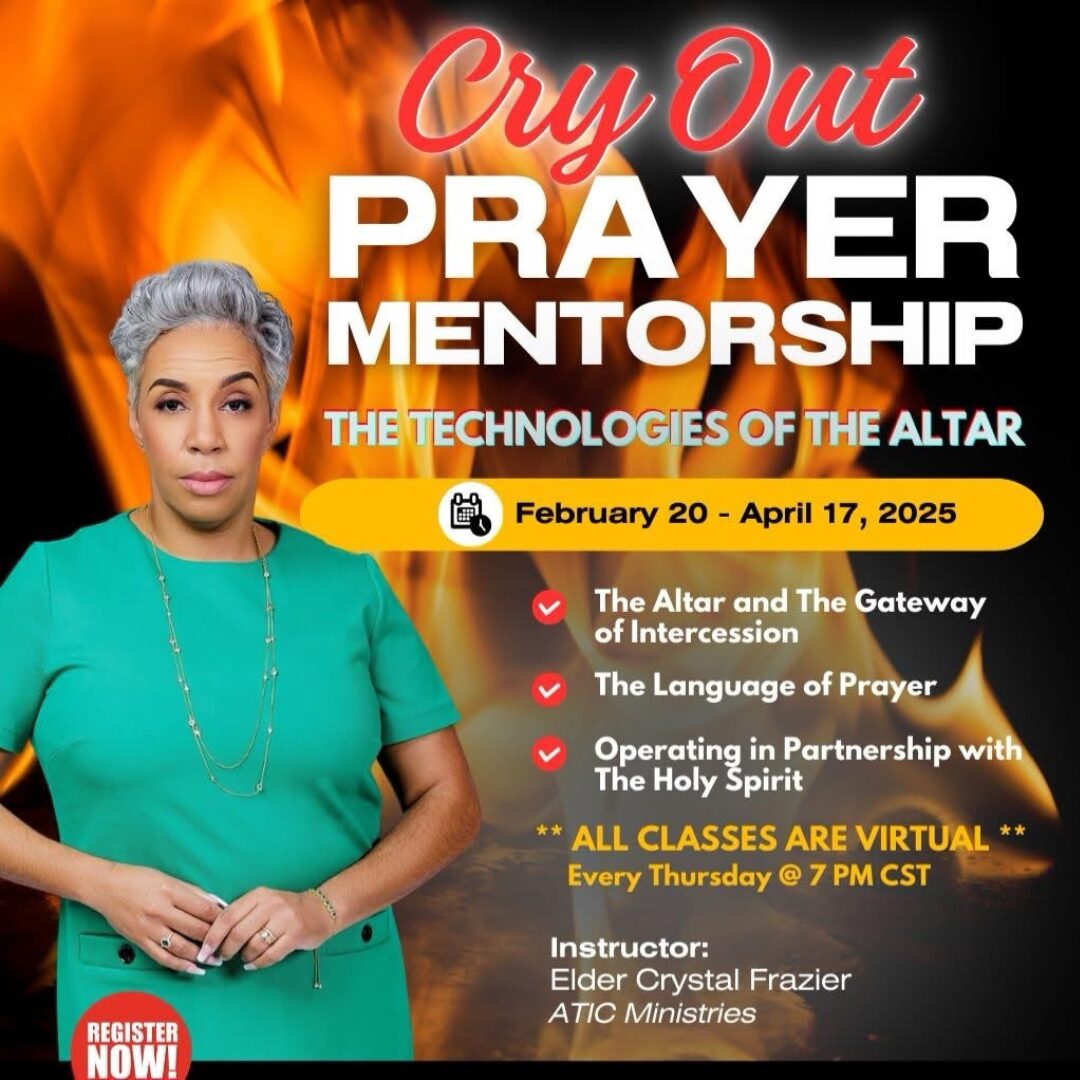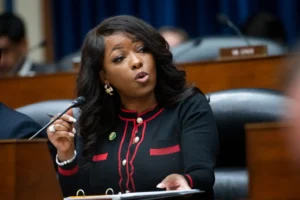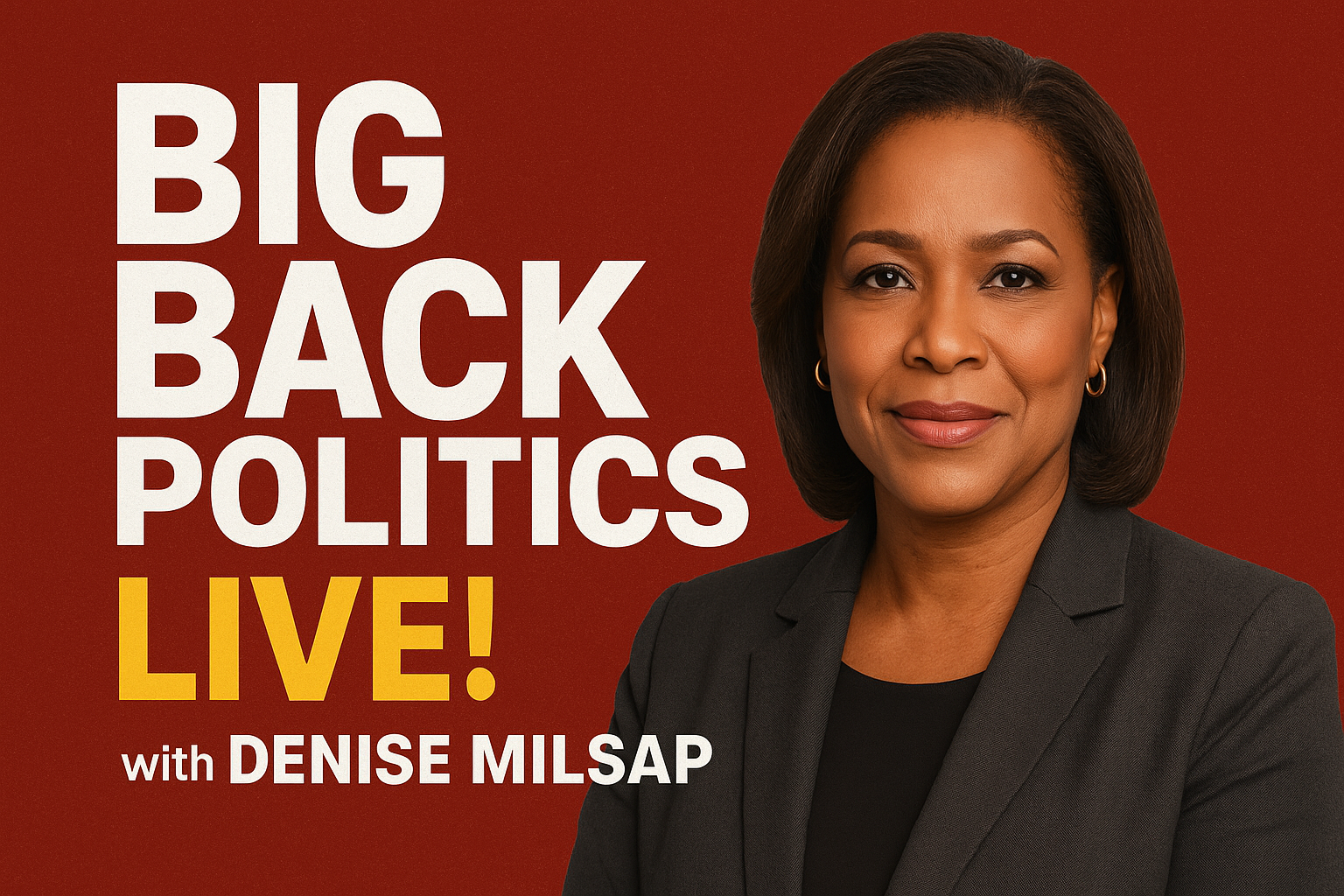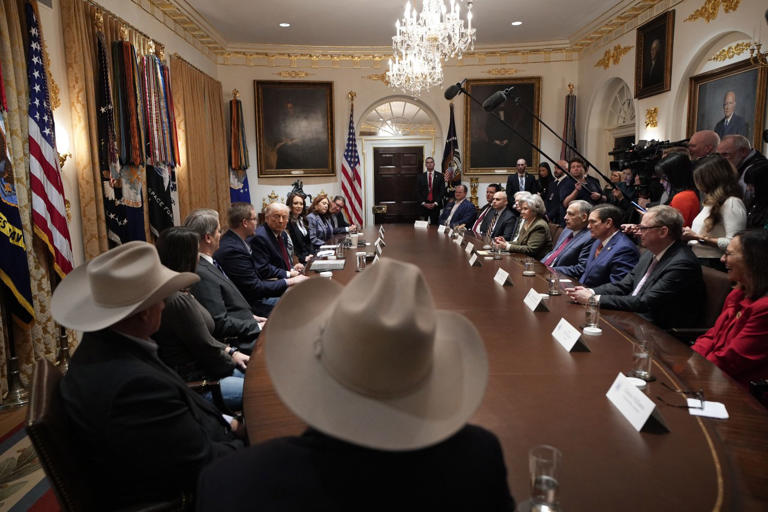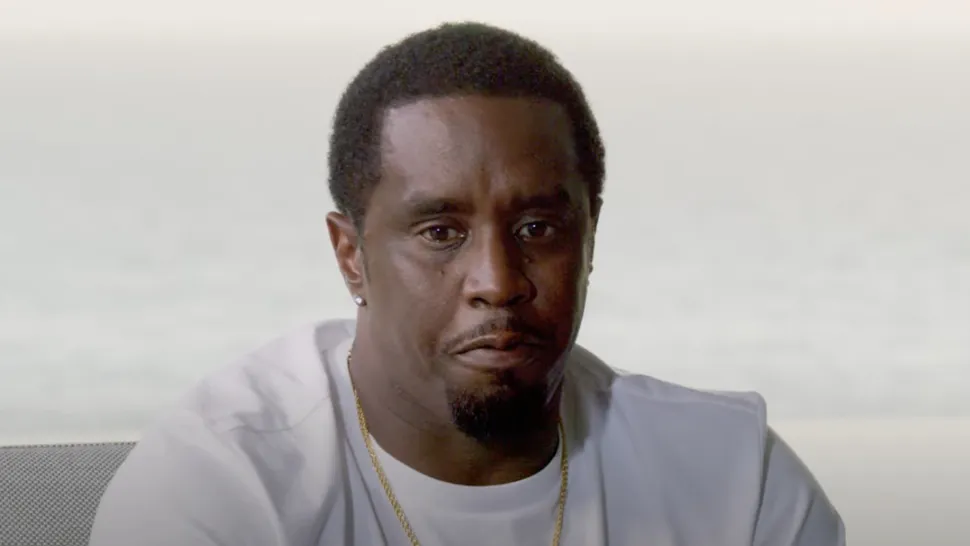Major Takeaways
Medgar Evers and Martin Luther King Jr. were both assassinated in the 1960s by white supremacists, sparking outrage and fueling the civil rights movement.
Charlie Kirk’s recent assassination echoes those tragedies but comes from a modern, polarized political climate with unknown motives.
All three deaths underscore the persistent danger of political violence in America and its chilling impact on democracy
From Evers to King to Kirk: Three Deaths, One Unfinished Conversation About Belief and Violence
In American history, some of the loudest voices for change—and resistance—have been silenced not by debate, but by bullets. The assassinations of Medgar Evers and Martin Luther King Jr., and now the murder of conservative activist Charlie Kirk, are three stark reminders that in this country, standing firmly for what you believe in can come with a deadly price tag.
Each man lived in a different era, pushed against different forces, and drew loyalty from very different communities. Yet their fates intersect in a disturbing pattern: they were all killed in public spaces, by rifle fire, with national shockwaves following close behind.
Medgar Evers: The First Martyr of a Movement
On June 12, 1963, Medgar Evers—field secretary for the NAACP in Mississippi—was gunned down in the driveway of his Jackson home. His assassin, Byron De La Beckwith, was a white supremacist tied to the Ku Klux Klan and White Citizens’ Council.
Evers was fighting segregation, voter suppression, and economic injustice. His death rallied national outrage and energized the civil rights movement, though justice came decades late. Two all-white juries failed to convict Beckwith in the 1960s. Only in 1994, more than thirty years after the killing, was he finally convicted and sentenced.
Martin Luther King Jr.: A Nation Shaken
Five years later, on April 4, 1968, the world turned its eyes to Memphis, Tennessee. Martin Luther King Jr., fresh from organizing for economic justice and sanitation workers’ rights, was shot on the balcony of the Lorraine Motel by James Earl Ray, a white man firing from a boarding house across the street.
King’s death tore open wounds already deep in the nation. Riots spread across more than 100 cities. Congress quickly moved on the Fair Housing Act of 1968, a piece of legislation King had championed. But the sense of conspiracy and unanswered questions around his assassination has never truly faded.
Charlie Kirk: A Modern Assassination
Fast-forward to September 10, 2025. Charlie Kirk, founder of Turning Point USA and a highly visible figure in conservative politics, was shot while speaking at Utah Valley University. Witnesses report a sniper’s bullet from a nearby rooftop struck Kirk in the neck. He was rushed to the hospital, but did not survive.
Law enforcement has called it a deliberate assassination. The identity of the shooter remains unknown, and motive has not been confirmed. Unlike the civil rights era killings, where white supremacy was an explicit force, this case is clouded in speculation. What is clear: Kirk was targeted, in public, for what he represented.
Parallels and Differences
The Weapon of Choice: All three were killed by rifles, planned attacks rather than random violence.
The Public Stage: None were murdered in secrecy. Each death was designed to be a spectacle, meant to send a message.
The Aftershock: Each killing ignited national debate—about race, justice, politics, and the safety of public voices.
But there are crucial differences. For Evers and King, the killers’ racial ideology was clear. For Kirk, the story is still unfolding. We know less about the shooter, the motives, and the broader context. Unlike the Jim Crow era, today’s violence emerges from a fractured, hyper-polarized landscape shaped by social media, culture wars, and partisanship.
Why This Comparison Matters
For the Urban City audience, this isn’t about ranking legacies or equating causes. Medgar Evers fought segregation. Martin Luther King Jr. fought for racial and economic justice. Charlie Kirk fought to shape conservative culture and politics. Their beliefs were not the same. But the violent silencing of each man raises the same haunting question:
Are we, as a society, any better at protecting those who dare to lead?
The lesson here is not just historical. Political violence—whether born from racial hatred in the 1960s or from today’s ideological divides—threatens democracy itself. When leaders become martyrs not by choice but by assassination, the message sent to the public is chilling: conviction carries mortal risk.
A Warning for the Present
It’s tempting to draw neat lines between these tragedies: three men, three rifles, three deaths. But the reality is more complex. Evers and King died in the shadow of white supremacy. Kirk’s death remains a mystery, caught in a web of speculation. What unites them is the reminder that our nation still wrestles with the same fundamental danger: when disagreement crosses into violence, everyone loses.
For some, Kirk will be remembered as a martyr for modern conservatism, just as Evers and King remain martyrs for civil rights. For others, his politics will remain divisive. But regardless of political stance, the fact remains: three men stood in the public square to argue for their vision of America, and three men were silenced by bullets.
Final Word:
History is not repeating itself—but it is echoing. And unless we confront political violence with truth, accountability, and collective responsibility, more of those echoes will turn into headlines.

